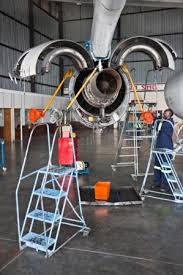Lost time during Base Maintenance can easily be up to 40% of the available man hours. Using Production Planning to reduce this can provide a significant saving to the business.
To deliver effective optimization requires that as Managers and Post Holders we develop a fundamental insight into the role of the Production Planning.
Amongst the many duties which may come under the direct control of Production Planning include the general oversight of the facilities, general work preparation, responsive behaviours to environmental conditions, inventory control. Sub – contract Co-ordination, planning of safety critical tasks, managing hangar availability, man hours estimation and availability and the control of approved data.
In an effective Production Planning department within a medium to large size organization The Production Planning activities which are driven solely by regulatory requirements may in fact contribute as little as 20% of the departmental work load.
The remainder of the work load (up to 80%) consists of the ongoing management of the various activities under management within the organization. (It is this 80% which is available to drive significant savings, providing of course the Production Planning department has sufficient resources to deliver).
The real challenges for an organization considering Optimizing Aircraft Base Maintenance is to use the Production Planning Department, not just as a service provider within the organization, but as an integrator of best practice.
In the aviation maintenance environment cost considerations are never far away. The ease of gathering data is all around us, such data may be used to support the understanding of the need for change. If we do not adopt efficient methods the organization can be left behind and suffer in terms of profitability which could even threaten the very existence of the organization.
Organizational change can have an impact across the entire business from the shop floor to the boardroom and it is necessary to introduce the changes sympathetically.
Factors which need to be considered include:
a) Objectives or goals, and the strategies by which we propose to achieve
b) The measurement system which we will employ to gather data and perform subsequent evaluations
c) The steps which we will perform and how they will be accomplished
d) The physical process of actual Implementation and how we will deal with the organizational changes.
A critical element is to move the process at a pace which will deliver the goals but will be acceptable to the organisations staff members; it is not uncommon to meet a reluctance to change.
Key elements include the successful marketing of the proposal, sometimes this may even require training in order to win the support of key individuals.
The project objectives, together with the content of the proposed changed procedures or process, must all be included in the specification document which forms part of the Change Management plan.
It is important that the project does not fail so it is necessary to ensure that we have leadership commitment as well as effective communication together with performance data which we can use to drive the project.
The project is most likely to be successful, if we can communicate tangible benefits which the stake holders are able to buy into. Also the more information which can be shared the better as this alleviates fear and concern regarding the potential of outcomes which can have negative consequences.
Resistance should not be seen as a reason to avoid the implementation of the change.
Sofema Aviation Services – SAS offers intensive training for Production Planning Staff: Basic, Advanced, Essentials and Optimizing.
The next 3 Day integrated Production Planning residential training is being delivered in Sofia, Bulgaria. Please see the following details for Production Planning training in Sofia.
Sofema Aviation Services provides in depth training for Maintenance and Production Planning see www.sassofia.com or email office@sassofia.com .
Tags:
EASA Part 145 Production Planning, Production Planning, Production Planning residential training, Sofema Aviation Services





